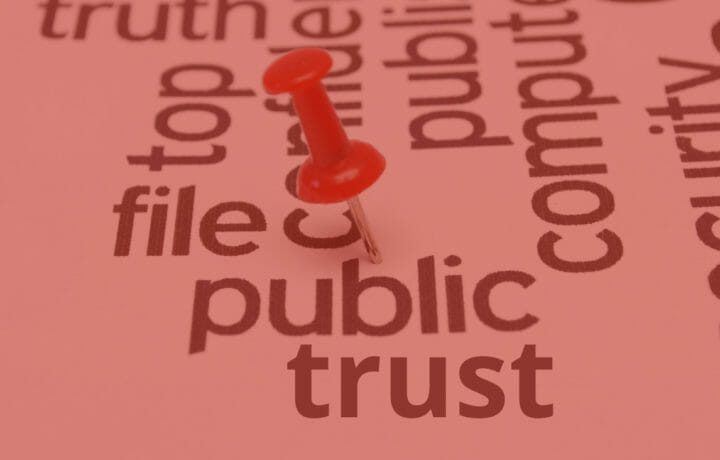Security clearance terminology can be confusing. One of the most common misconceptions is between positions of public trust and security clearances – while the forms you have to fill out seem nearly identical and the criteria are very similar, applying for a position of public trust is not, in fact, a security clearance. That can be a good or a bad thing.
One recent public trust applicant was shocked at how fast his public trust went through. Having very recent drug use in his background, after filling out the SF-85P he assumed his chances of obtaining the job were sunk. So much so, that he transitioned to a position in the private sector. Low and beyond, within a very short amount of time, the public trust was granted – what gives?
- A public trust is NOT a security clearance, and can be granted on a very basic criminal and credit check.
- A public trust does not confer access to classified information, and is therefore not a security clearance. A public trust is often required for IT or financial positions supporting the government.
If you’re afraid you may not be able to obtain a security clearance due to recent drug use, don’t opt yourself out of the process. But also keep in mind that a public trust may be the answer – with a less rigorous application process required, issues that may be an issue for a full clearance investigation may not be an issue for a public trust position.
Common jobs that require a public trust include IT or finance positions in support of the federal government. You’d have access to sensitive information – and the government wants to establish your basic reliability and trustworthiness through a criminal and financial check – but those positions don’t require access to classified information. Without the classified information requirements, the process of obtaining a position can be easier.
Key to the Process? Don’t Lie.
Just because a public trust requires minimal checks doesn’t mean you shouldn’t list all of the responses to questions accurately. Because most of the checks are automated, a public trust application really relies on your honesty in filling out the form. And yes, the application process probably won’t draw out issues you didn’t disclose unless there’s a digital paper trail, but that won’t be the case if you go for a security clearance down the road. Lying about your employment history, education, drug use, or other details may not cause issues for your public trust, but they will absolutely result in a clearance denial. And keep in mind that adverse decisions roll down hill. Personal conduct issues that arise in a future investigation won’t just cost you a clearance, they could cost you your public trust job.




